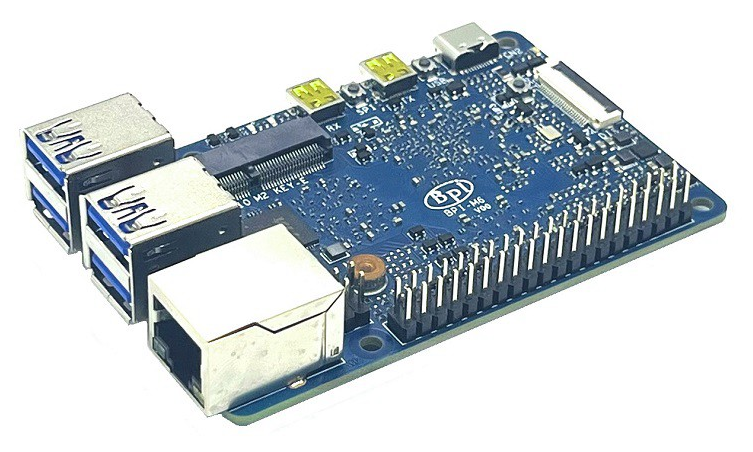Products
Manufacturers
Applications
ipXchange interviewed Synaptics at Hardware Pioneers Max 2023 about their latest disruptive device within the AI market. With that said, detailed specifications of the VS680 has proven hard to come by, and like other groundbreaking AI technology, we at ipXchange expect that datasheets are available only on special request.
Taken from the specifications of the Banana Pi BPI-M6 (pictured), which is built around the device, Synaptics’ VS680 features a quad-core Cortex-A73 processor running at 2.1 GHz, a Cortex-M3 processor, an Imagination GE9920 GPU, and a Neural Processing Unit (NPU) running at up to 6 .75 Tops. The Banana Pi itself offers 4 GB LPDDR4 memory and 16 GB EMMC storage, with 4x USB 3.0 interfaces, a gigabit ethernet port, 1x HDMI-RX port, and 1x HDMI-TX port. This, or a similar Pi-derivative board, was the hardware platform running the demo during our interview with Synaptics.
In short, Synaptics’ VS680 offers real-time edge-AI audio-visual capabilities at significantly lower power consumption than competing solutions (3-4 W), with superior data privacy/security that cannot be guaranteed by cloud-based processing. Workloads include smart framing, voice and face identification, speech-to-text, and object tracking at the level of fingers within a hand gesture. This allows the VS680’s use in high interactivity HMIs for entertainment and retail, people tracking and process monitoring, security and surveillance applications, and more.
As previously stated, ipXchange has been able to gather limited information on these devices, but we know that Synaptics produces all-in-one platforms that can be used to integrate or test the VS680 for use in a design in conjunction with their wide range of connectivity chipsets. If you have a commercial project and would like to seek a potential partnership with Synaptics, fill out the form below, and ipXchange will get you connected.
